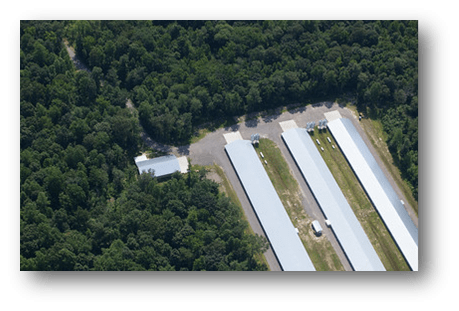Another Class Action Filed Claiming Companies Have Miscategorized Contract Growers
By Paul Goeringer, Extension Legal Specialist, UMD
The article is not a substitute for legal advice. See here for the site’s reposting policy.
Earlier this year, I posted about a recently filed class action lawsuit involving contract poultry growers, arguing that they were employees of Amick Farms and not independent contractors. For anyone needing a refresher on a class action lawsuit, I encourage you to check out that post. Another class action lawsuit filed in Georgia by growers for Perdue argues that growers are employees, not independent contractors. The lawsuit also contends that Perdue failed to pay the growers the federal minimum wage and overtime and breached the grower agreement by calling the growers independent contractors. This new lawsuit is Parker v. Perdue Farms, Inc., No. 5:22-cv-00268-TES.
Background
The plaintiff, a poultry farmer from South Carolina, is a contract grower for Perdue Farms, Inc. and their operation in Milledgeville, Georgia. Parker, the plaintiff, has been a poultry grower for Perdue but was informed by Perdue in 2019 that they would no longer provide him with birds. The contract stated that Parker was an independent contractor and that Perdue would process the birds and market the final product.
As a refresher, an independent contractor is a self-employed person or entity with the right to control or direct the result of work, what will not be done, and how work will be done. For example, you hire a plumber to repair a water line issue at your house. The plumber is an independent contractor who controls the work, when and how it will be done, and what will not be done. In addition, independent contractors are responsible for paying their social security and Medicare taxes.
Claims Being Pursued
The claims pursued in this new class action lawsuit are more straightforward than the previous one I discussed. The first claim is that Perdue failed to pay a minimum wage to its growers. Next, based on allegations, Parker argues that the Perdue growers are employees, not independent contractors, and have not paid its employees the federal minimum wage. Next, because the growers worked over 40 hours per week, Parker argues that growers are entitled to overtime under federal law. Although the federal Fair Labor Standards Act exempts agricultural workers, Parker argues that the growers do not fit within those categories. Therefore, Perdue was required to pay overtime for work over 40 hours per week.
Next, Parker argues that because the Poultry Production Agreement that all growers sign treats them as independent contractors, Perdue has violated that agreement by failing to treat them as independent contractors. This claim is based on the argument that because the growers are Perdue employees, Perdue has breached the contract by not treating them as independent contractors.
With the remaining claims, Parker argues that the growers are entitled to a declaration that they are employees and should be treated as such by Perdue. First, Parker includes a claim of fraud based on the argument that because Perdue represented to the growers that they would be independent contractors, Perdue withheld information to get them to sign up with Perdue. Next, Parker argues that these misrepresentations should be considered negligent misrepresentation. Negligent misrepresentation is when a party makes statements without regard for the truth. In this case, Parker claims that Perdue knew the growers were not independent contractors but still told the growers they would be treated that way to get them to sign contracts. Therefore, Perdue has been unjustly enriched by not compensating the growers appropriately based on these alleged misrepresentations.
Finally, Parker includes claims based on the Packers and Stockyards Act. This federal law regulates practices within the poultry and livestock industries. This claim is for only Parker and not the entire class. Parker claims that Perdue did not weigh the birds accurately, which reduced Parker’s compensation. This claim stems from arguments Parker is making that Perdue allegedly retaliated against him after Parker made claims against Perdue and its practices to USDA.
What Do You Need to Know?
It's too early to know what will happen in this litigation. We are still in the early stages, and this case may not survive beyond this. It is also too early to tell if this litigation will be certified as a class action lawsuit. However, if it is certified as a class action, Perdue growers may receive notices that they are included in the litigation. As this litigation progresses, I’ll keep updating the information so growers know what to expect.
Back to Commercial Poultry News-October 2022
